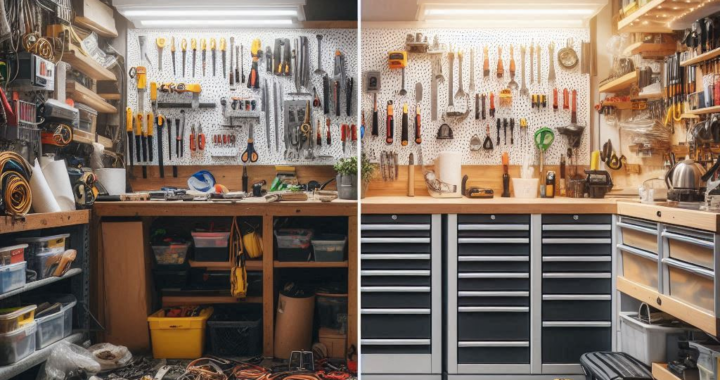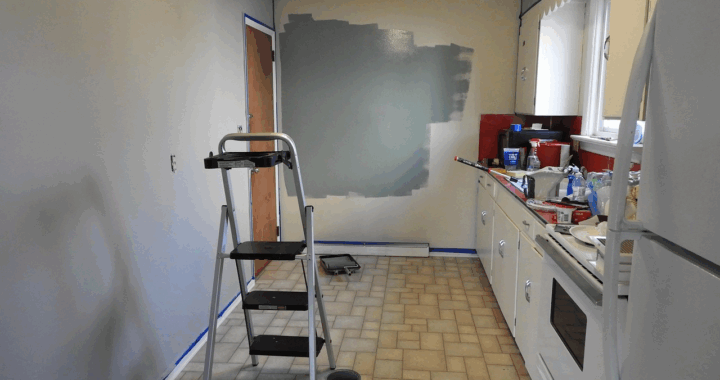Simple Tricks to Keep Your Home Comfortable Year-Round

Maintaining a comfortable home environment throughout the year doesn’t have to mean cranking up the heat in winter or overworking your air conditioner in summer. With some thoughtful adjustments and simple tricks, you can create a cozy atmosphere no matter the season. By focusing on energy-efficient practices and leveraging natural and mechanical methods, you’ll not only enhance comfort but also save on energy bills.
Whether it’s optimizing your air conditioner usage during the warmer months or preparing your home to retain warmth in winter, these practical tips will help you keep your living space enjoyable all year long.
-
Use Your Thermostat Wisely
Your thermostat is a powerful tool for maintaining comfort, but how you use it can significantly impact your energy consumption. Adjusting settings strategically helps keep your home at an ideal temperature without overburdening your HVAC system.
Thermostat Tips:
- Invest in a programmable thermostat: These devices allow you to set temperature schedules based on when you’re home or away, ensuring energy efficiency.
- Seasonal adjustments: In summer, set your thermostat to 24–26°C (75–78°F) when you’re home and higher when you’re out. In winter, aim for 20–22°C (68–72°F) during the day and lower at night.
- Avoid extreme settings: Rapid temperature changes can overwork your heating or cooling system, leading to higher energy costs.
Smart thermostat usage ensures your home stays comfortable while reducing unnecessary energy waste.
-
Optimize Air Circulation
Good airflow is essential for maintaining a consistent and pleasant temperature throughout your home. Improving air circulation can help distribute warm or cool air more effectively, reducing hot and cold spots.
Ways to Enhance Air Circulation:
- Use ceiling fans: Set them to rotate counterclockwise in summer to push cool air downward and clockwise in winter to circulate warm air.
- Open interior doors: Allow air to flow freely between rooms to maintain even temperatures.
- Ensure vents are unobstructed: Clear furniture, curtains, or rugs that might block vents and restrict airflow.
Effective air circulation helps your HVAC system work more efficiently and improves overall comfort.
-
Maximize Insulation and Seal Leaks
Proper insulation and sealing play a critical role in keeping your home comfortable year-round. They prevent heat from escaping in winter and keep warm air out during summer, reducing the strain on your heating and cooling systems.
Insulation and Sealing Tips:
- Upgrade attic insulation: Heat rises, so insulating your attic is essential for temperature regulation.
- Seal gaps and cracks: Use caulk or weatherstripping around windows, doors, and vents to stop drafts.
- Install insulated curtains: These add an extra layer of protection, keeping indoor temperatures stable.
Investing in insulation and sealing improvements ensures your home retains its desired temperature with minimal energy loss.
-
Leverage Natural Temperature Regulation
Harnessing natural elements like sunlight and airflow can help keep your home comfortable without relying solely on your HVAC system.
How to Use Nature to Your Advantage:
- In winter: Open curtains during the day to let sunlight warm your home, then close them at night to retain heat.
- In summer: Close blinds or shades during the hottest parts of the day to block solar heat, and open windows at night to let in cooler air.
- Plant trees strategically: Deciduous trees provide shade in summer and allow sunlight to filter through in winter.
These simple adjustments can reduce your reliance on mechanical systems while maintaining comfort.
-
Maintain Your HVAC System
Regular maintenance is crucial for ensuring your heating and cooling systems perform efficiently and effectively. Neglecting upkeep can lead to higher energy bills and inconsistent temperatures.
Maintenance Checklist:
- Change air filters regularly: Dirty filters restrict airflow and force your system to work harder. Replace them every 1–3 months.
- Clean vents and ducts: Dust and debris in your HVAC system can hinder performance and reduce air quality.
- Schedule professional servicing: Have your system inspected and tuned up annually to identify and address potential issues.
Well-maintained systems are more reliable and better equipped to keep your home comfortable throughout the year.
-
Use Zoned Heating and Cooling
Zoned systems allow you to control the temperature in specific areas of your home, making it easier to maintain comfort where it’s needed most. This approach is particularly useful for larger homes or spaces with varying temperature needs.
Benefits of Zoned Systems:
- Targeted comfort: Heat or cool only the rooms you use most, such as living areas during the day and bedrooms at night.
- Energy savings: Avoid wasting energy on unoccupied rooms.
- Customizable settings: Different zones can have unique temperature settings to suit individual preferences.
Zoned heating and cooling ensure that every area of your home remains comfortable without wasting energy.
-
Reduce Indoor Heat Sources
Heat-generating appliances and activities can make your home uncomfortably warm, especially during summer. Minimizing these sources can help maintain a cooler indoor environment.
Ways to Reduce Heat Generation:
- Cook smart: Use a microwave, slow cooker, or outdoor grill instead of your oven.
- Switch to LED lighting: These bulbs produce less heat and consume less energy.
- Unplug unused devices: Electronics generate heat even when not in use, so unplug them or use power strips to turn off multiple devices at once.
By reducing indoor heat sources, you can keep your home cooler and more comfortable during warmer months.
-
Balance Humidity Levels
High humidity can make your home feel warmer in summer and colder in winter. Managing indoor moisture levels is key to maintaining year-round comfort.
Humidity Control Tips:
- Use a dehumidifier: Reduce excess moisture in summer to improve comfort and prevent mold growth.
- Ventilate properly: Run exhaust fans in bathrooms and kitchens to remove humidity from showers and cooking.
- Add humidity in winter: Use a humidifier to combat dry air, which can make heated rooms feel colder.
Balancing humidity levels enhances the effectiveness of your heating and cooling efforts.
Creating a comfortable home year-round doesn’t have to involve constant adjustments or high energy costs. By optimizing your air conditioner usage, improving insulation, leveraging natural temperature control, and maintaining your HVAC system, you can enjoy a consistently pleasant living space while keeping energy expenses in check. These simple tricks will help you stay comfortable no matter the season.



 Quick Garage Electrical Upgrades for Weekend Projects
Quick Garage Electrical Upgrades for Weekend Projects  How to Protect Furniture During a Remodel
How to Protect Furniture During a Remodel  DIY Weekend Projects That Add Value to Your Home
DIY Weekend Projects That Add Value to Your Home